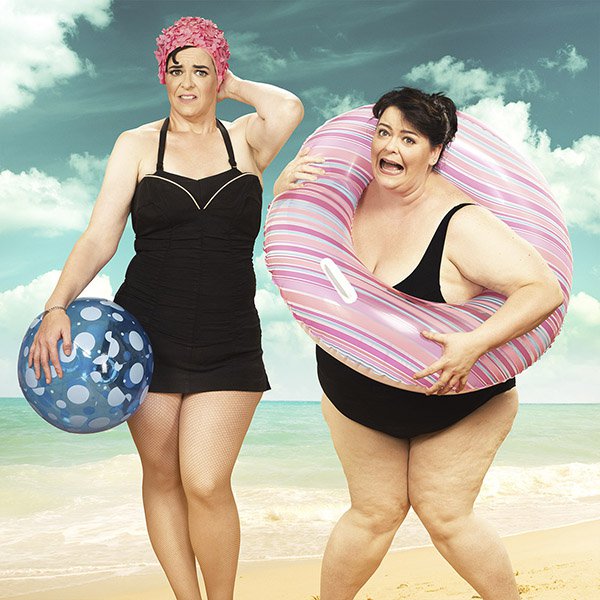The Maximum Amount of Weight You Could Realistically Gain in One Day
Of course you try your very best to stick to a relatively healthy diet and exercise plan. But some days, you're bound to go overboard—after all, you're only human. Perhaps it’s that time of the month and you just can’t stop munching; perhaps you had one too many margs at happy hour and find yourself housing enough tacos at dinner to win an eating contest; or perhaps you’re so overtired that you double up on breakfast because your stomach feels like a bottomless pit. Point is, everyone overindulges on occasion. But while it’s easy to freak out and think you "blew your diet," don’t—because you didn’t. We asked Samantha Cassetty, R.D., M.S., nutrition director at Luvo, just how much weight you can realistically gain in one terrible, horrible, no good, very bad (eating) day. And it turns out, you’d have to take in a ridiculous amount of food to gain even just a pound in one day.
“It’s virtually impossible to gain weight overnight, even if you really blew it on bar food,” says Cassetty. “The reason comes down to calorie math. Though it’s not 100 percent precise, the basic principle stands true: In order to gain weight, you’d have to eat 3,500 more calories than you typically eat and burn off to maintain your figure." So let’s say you eat 2,000 calories per day on a normal day. You’d have to eat 3,500 additional calories, totaling 5,500 calories, to gain a single pound. And that's not even taking any physical activity into account
What does 3,500 calories look like, exactly? “To get 3,500 more calories, you could eat your regular diet and then also have three glasses of wine (370 calories), two chicken wings (110 calories), some onion rings (340 calories), a portion of chips and queso (290 calories), one burger with the works (860 calories), and a slice of chocolate cake (795 calories). That’s a lot of food—and you haven’t even hit the mark yet!” says Cassetty.
There’s even more scientific evidence that it’s pretty hard to gain real weight after one day of overeating: “Although people typically say they gain five to 10 pounds over the six-week holiday period, the best study to date, published in the New England Journal of Medicine, found that, on average, most people gained just one," says Cassetty. "Fewer than 10 percent of the study participants actually gained more than five pounds between Thanksgiving and New Year’s Day."
Of course, a bad diet day could leave you feeling incredibly bloated and just “ugh” the next day. “But as long as you course correct the next day—i.e., you eat responsibly and get back to your fitness routine—you’ll keep the real pounds from piling on," says Cassetty. So as you go into the holiday season, remember: It’s okay if you love your mom’s cooking so much that you eat a lot of it. Just don’t make a habit of it, and be sure to stay consistent with your gym routine.
And if you do get off track in a more significant way, check out what not to do after you’ve gained weight.
MORE: The 8 Best Bedtime Snacks for Weight Loss
- DON'T MISS
- 3 Ways to prevent growing waistlines
- 3 Summer foods and drinks to watch out for
- 10 SUPER USEFUL TIPS FOR GIRLS WHO WANT TO NAIL THEIR WEIGHT LOSS GOALS
- Can watercress aid a flatter belly?
- Prevent weight gain during menopause
- OVERVIEW OF TOP 10 WORLD’S MOST POPULAR DIETS
- 10 FABULOUSLY EASY WEIGHT LOSS TIPS THAT WILL CHANGE YOUR LIFE
- Consume more calories earlier than later
- Eat eggs to beat sugar cravings
- Will Doing Workouts That Are Twice as Long Double Your Weight-Loss Results?




